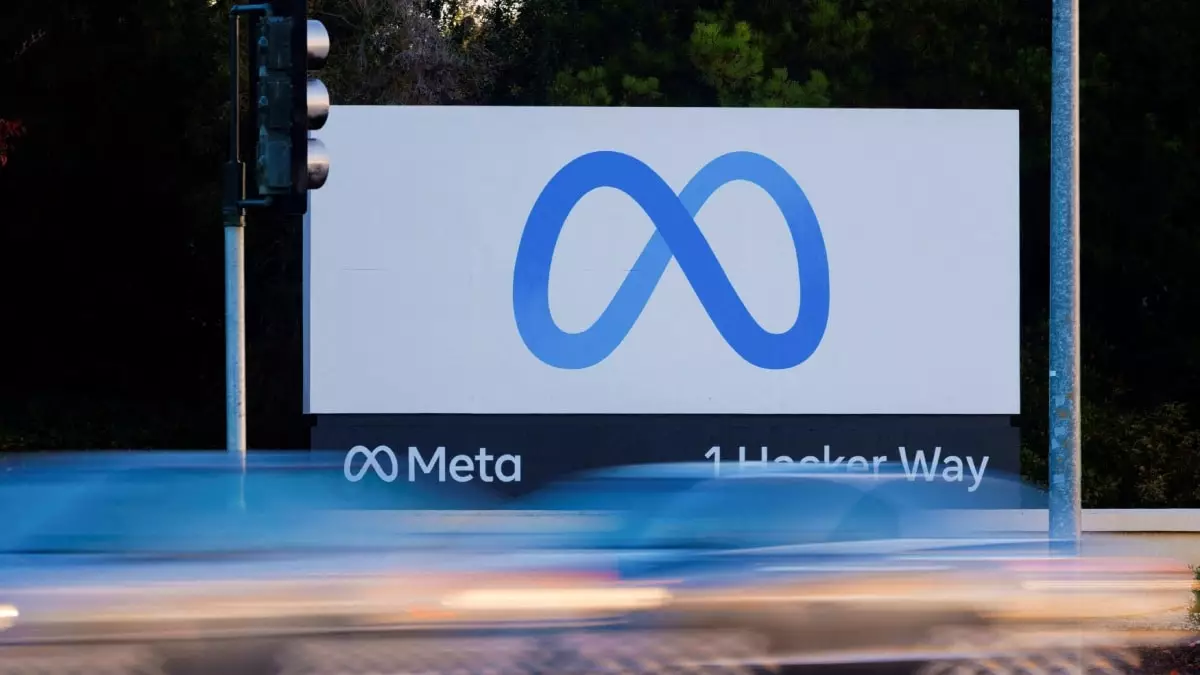In a significant development within the realm of technology regulation, Meta Platforms Inc. has been slapped with a staggering €798 million ($841 million) fine by the European Union. This unprecedented ruling addresses the company’s antitrust violations, stemming from its practice of tying its Facebook Marketplace service to its core social networking platform. The ramifications of this decision extend beyond just a financial penalty; it highlights a crucial turning point in the regulatory landscape for major tech corporations.
The Context of the Fine
The European Commission’s decision to penalize Meta is a landmark moment, representing the first time the social media giant has faced such penalties for antitrust violations within the EU. The regulators accused Meta’s business model of unfairly benefiting its Marketplace platform by leveraging the vast user base of its social network. According to Margrethe Vestager, the EU antitrust chief, not only did Meta engage in tying practices, but it also imposed unfavorable trading conditions on competing classified service providers. This raises questions about fair competition in an increasingly concentrated digital marketplace.
As one of Silicon Valley’s sternest critics, Vestager’s role in this investigation is pivotal. With a reputation for handing out billions in fines to major tech companies, her actions have set a precedent that other regulators may follow, emphasizing the urgent need for accountability within the tech industry.
The repercussions of the EU’s ruling are expected to reverberate through Meta and potentially affect the broader tech ecosystem. With the EU’s Digital Markets Act (DMA) tightening regulations around monopolistic behaviors, the decision comes at a time when the spotlight on tech giants is intensifying. Meta’s swift decision to appeal indicates the company’s strategy to protect its business model while highlighting its claims that the fine overlooks the complexities of the European market.
In addition to the fine, Meta faces a slew of challenges, including ongoing antitrust scrutiny from U.S. regulators. The resurgence of rival platforms like Bluesky, particularly in the wake of Donald Trump’s political comeback and subsequent criticism of Meta, further complicates the landscape for the company. Such challenges are not merely regulatory; they epitomize a shift in consumer sentiment and market dynamics that Meta will have to navigate carefully.
Interestingly, while Meta faces this stringent penalty, other tech giants like Amazon have managed to escape similar fates through negotiations and compliance measures. In 2022, the EU’s lack of penalties against Amazon for allegedly using competitors’ sales data underscores variance in regulatory enforcement. Such disparities raise questions about the effectiveness of regulatory frameworks and their ability to uniformly apply antitrust laws across the industry.
Moreover, the UK’s Competition and Markets Authority recently reached a settlement with Meta, highlighting the growing trend among regulators to engage in collaborative resolutions rather than issuing outright fines. This suggests that while penalties may deter certain behaviors, fostering compliance through negotiation may be an equally effective strategy.
As Meta looks ahead, it must recalibrate its approach amidst mounting scrutiny. The company’s financial performance remains robust, reporting a 19 percent sales increase in its recent quarter. However, this success may be overshadowed by ongoing legal battles and regulatory challenges. To maintain growth, Meta will likely need to innovate within the parameters set by regulators while also investing in emerging technologies like artificial intelligence and virtual reality.
The appeal process for the EU fine could extend for years, adding an element of uncertainty to Meta’s future operations within Europe. Additionally, adapting to new regulations under the DMA will require a strategic overhaul, affecting how Meta engages with its extensive user base and rivals in the digital marketplace.
Meta’s €798 million fine from the European Union signifies more than just a financial penalty; it’s a pivotal moment in the ongoing conversation around antitrust regulations and big tech accountability. As the regulatory landscape continues to evolve globally, tech companies must adapt their strategies to not only comply with legal frameworks but also regain consumer trust. The scrutiny from regulators serves as a reminder that the era of unregulated growth may be coming to an end, necessitating a shift toward greater transparency and fair competition within the digital economy.

